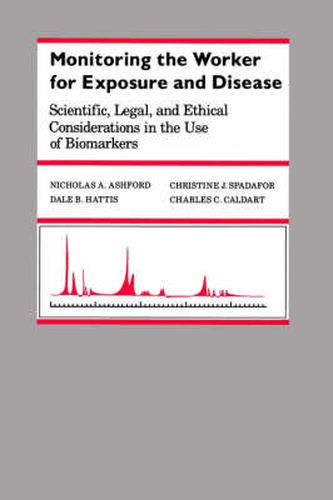Readings Newsletter
Become a Readings Member to make your shopping experience even easier.
Sign in or sign up for free!
You’re not far away from qualifying for FREE standard shipping within Australia
You’ve qualified for FREE standard shipping within Australia
The cart is loading…






Human monitoring as a supplement to or replacement for environmental monitoring of toxic substances in the workplace has become an increasingly important issue within the last decade, leading to Congressional hearings, governmental studies, and scientific conferences around the world. Just as the purposes for undertaking human monitoring are diverse and sometimes conflicting, so too are the concerns– medical, legal, and ethical– such testing has generated. The authors begin by providing precise characterizations of the types of monitoring now in use and a clear account of the legal basis for OSHA monitoring requirements. They then turn to scientific and technical concerns that have evolved around monitoring, including the frequency and timing of examinations, human variability, and the distinctions that exist between high-risk and sensitive groups. Specific legal and ethical problems of conducting monitoring tests on workers are then covered in full, including the consequences for the worker of medical removal from the workplace, the conflict between human monitoring and personal privacy, access to medical records, and the use and possible misuse of test results. The volume concludes with policy recommendations for the use of human monitoring, recommendations for the use of human monitoring, recommendations that would achieve the goal of reducing occupational disease and injury while remaining within the bounds of a supportable ethical framework.
$9.00 standard shipping within Australia
FREE standard shipping within Australia for orders over $100.00
Express & International shipping calculated at checkout
Human monitoring as a supplement to or replacement for environmental monitoring of toxic substances in the workplace has become an increasingly important issue within the last decade, leading to Congressional hearings, governmental studies, and scientific conferences around the world. Just as the purposes for undertaking human monitoring are diverse and sometimes conflicting, so too are the concerns– medical, legal, and ethical– such testing has generated. The authors begin by providing precise characterizations of the types of monitoring now in use and a clear account of the legal basis for OSHA monitoring requirements. They then turn to scientific and technical concerns that have evolved around monitoring, including the frequency and timing of examinations, human variability, and the distinctions that exist between high-risk and sensitive groups. Specific legal and ethical problems of conducting monitoring tests on workers are then covered in full, including the consequences for the worker of medical removal from the workplace, the conflict between human monitoring and personal privacy, access to medical records, and the use and possible misuse of test results. The volume concludes with policy recommendations for the use of human monitoring, recommendations for the use of human monitoring, recommendations that would achieve the goal of reducing occupational disease and injury while remaining within the bounds of a supportable ethical framework.